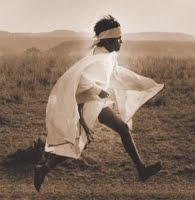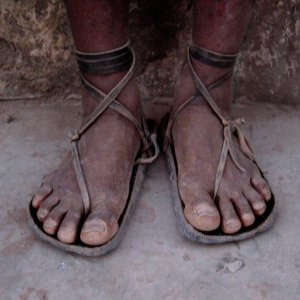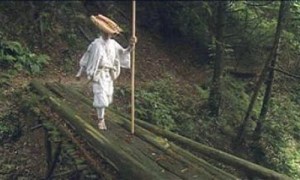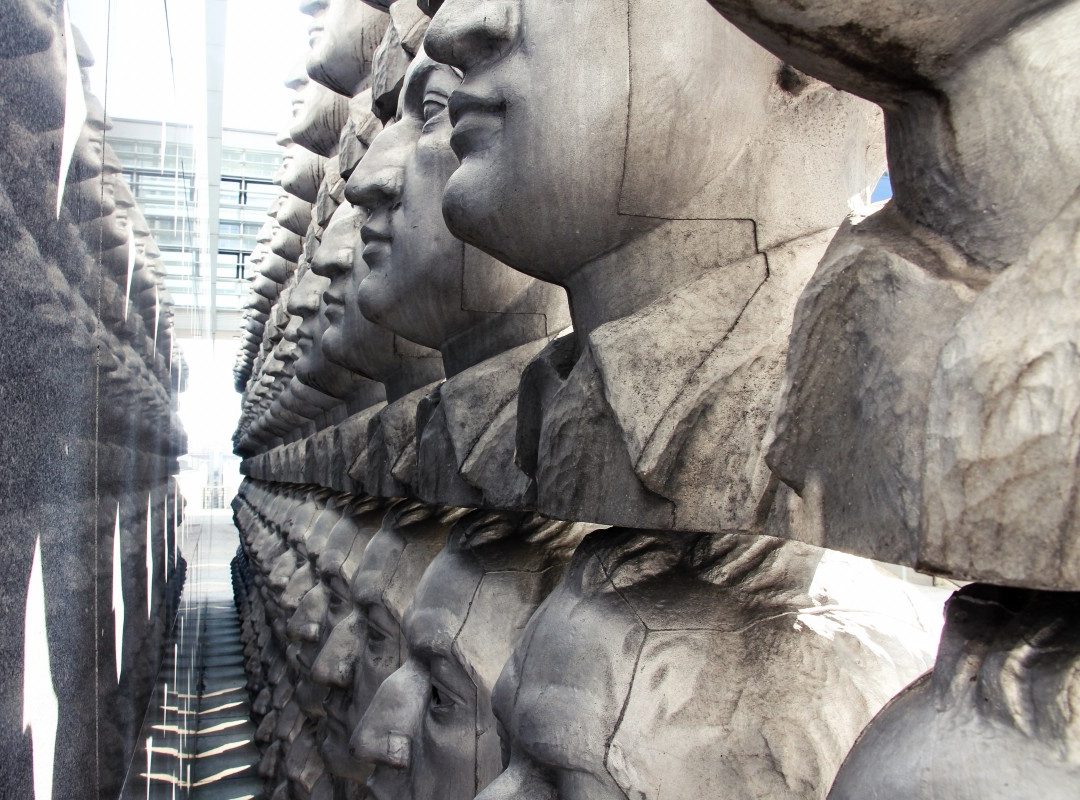 Like many folks, I consider myself to be a serious amateur athlete. I train in the martial arts around 7 to 10 hours a week and my training includes aerobic and resistance training in addition to learning technique. Having officially reached middle-age last year the limitations to my training regime (other than time and money) are largely related to the increased time it takes my body to recover from injury. An injury, say to my knee, that would have needed a couple of recovery days in my 20s, now may require 2-3 weeks. I have accepted this limitation with equanimity along with accepting the fact that I am growing older. Yet in the back of my mind I want to train more and reach a higher level.
Like many folks, I consider myself to be a serious amateur athlete. I train in the martial arts around 7 to 10 hours a week and my training includes aerobic and resistance training in addition to learning technique. Having officially reached middle-age last year the limitations to my training regime (other than time and money) are largely related to the increased time it takes my body to recover from injury. An injury, say to my knee, that would have needed a couple of recovery days in my 20s, now may require 2-3 weeks. I have accepted this limitation with equanimity along with accepting the fact that I am growing older. Yet in the back of my mind I want to train more and reach a higher level.
This wish to train harder is reflected in the example of some of my teachers. Sensei Ben Otake, my Karate teacher has reached a pinnacle of perfection in his technique. He has unbelievable economy of movement allowing him to generate incredible strength and speed far beyond karateka half his age. When he was my age he sparred with tigers and bears (I am not making this up!).
My Thai Boxing teacher, and ex-NFL player, Kru Ken Rose is in his late 40s, and looks like he could walk on to a pro-football field tomorrow and play at full tilt. His strength is only matched by the intensity of his workout schedule.
But there is another level of training. Lately, I have been reflecting on two different groups of extreme atheletes, hoping to derive some inspiration for training harder. The first group is the subject of Born to Run, a new book by Christopher McDougall on the Tarahumara of Copper Canyon Mexico. The Tarahumara are desceded from an indigiouness people of Mexico who fled from the Spainsh invasion in the 16th century taking up residence in the extremely remote Copper Canyon region of the Sierra Madre. While related to the Huichol and Yaqui, the Tarahumara have a unique lifestyle centered around extreme long-distance running. It is not unusually for Tarahumara to run 80 or more miles in a day, or to engage in foot races for days at a time, or to run 200-300 miles over the period of a few days. How the Tarahumara accomplish this without suffering the typical sports injuries seen in the developed world has attracted the attention of scientists and extreme athletes from around the world. It seems they have a specific way of running that helps keep them from injury. This technique works in part because the Tarahumara use only the most basic of footwear, essentially running barefoot! This running style is now being adopted by ultra-marathon runners in the west with success. The Tarahumara also seem not to suffer from the typical degenerative diseases of the developed world including, cancer, heart disease, diabetes, etc., while living a party-filled existence fueled by beer, cigarettes, and a high carb diet. The Tarahumara are also peaceful, non-violent, and unfortunately in danger of getting in the way of drug traffickers who covet their remote isolation.
have a specific way of running that helps keep them from injury. This technique works in part because the Tarahumara use only the most basic of footwear, essentially running barefoot! This running style is now being adopted by ultra-marathon runners in the west with success. The Tarahumara also seem not to suffer from the typical degenerative diseases of the developed world including, cancer, heart disease, diabetes, etc., while living a party-filled existence fueled by beer, cigarettes, and a high carb diet. The Tarahumara are also peaceful, non-violent, and unfortunately in danger of getting in the way of drug traffickers who covet their remote isolation.
The other group of e xtreme runners is one that I known about for some time. These are the so-called Marathon Monks of Mt. Hiei, which is near Kyoto, Japan. These monks of the Tendai sect of Buddhism have evolved a religious meditation practice centered on long distance running. Like all other Buddhist meditation practices the purpose of running is to reach a state of enlightenment and to benefit all sentient beings through gaining spiritual merit which is then given away. The marathon monks prepare for years to take on a 1000 day challenge which involves running the equivalent of a marathon every day for months at a time. For about the 1st year the monks run 24 miles a day for 100 consecutive days. In later years the monks running 24 miles a day for 200 consecutive days. In the final years of the challenge the monks increase their daily distance to 37 miles a day for 100 days, and finally to 52 miles a day for 100 days. Only 46 men have completed the 1000 day challenge since 1885. In a quite un-Buddhist fashion, the running monks carry a knife and section of rope while running to remind them of their vow to either commit sepukku (ritual self-disembowelment) or hang themselves if they fail the challenge. The running trails used by the monks are strewn with the graves of past monks who could not finish and supposedly committed suicide on the trail. (Luckily, no monks in recent history have done this). The monks also carry food, candles, Buddhist texts, etc, to make offerings and pray at small forest temples along the way. The Marathon Monks also have a unique style of running that is very relaxed with the eyes focused about 100 feet in front of the runner. Similarly to the Tarahumara, the Marathon Monks use the most primitive of footwear – woven straw sandals. The Marathon Monks also eat a strict vegan diet, even during the challenge.
xtreme runners is one that I known about for some time. These are the so-called Marathon Monks of Mt. Hiei, which is near Kyoto, Japan. These monks of the Tendai sect of Buddhism have evolved a religious meditation practice centered on long distance running. Like all other Buddhist meditation practices the purpose of running is to reach a state of enlightenment and to benefit all sentient beings through gaining spiritual merit which is then given away. The marathon monks prepare for years to take on a 1000 day challenge which involves running the equivalent of a marathon every day for months at a time. For about the 1st year the monks run 24 miles a day for 100 consecutive days. In later years the monks running 24 miles a day for 200 consecutive days. In the final years of the challenge the monks increase their daily distance to 37 miles a day for 100 days, and finally to 52 miles a day for 100 days. Only 46 men have completed the 1000 day challenge since 1885. In a quite un-Buddhist fashion, the running monks carry a knife and section of rope while running to remind them of their vow to either commit sepukku (ritual self-disembowelment) or hang themselves if they fail the challenge. The running trails used by the monks are strewn with the graves of past monks who could not finish and supposedly committed suicide on the trail. (Luckily, no monks in recent history have done this). The monks also carry food, candles, Buddhist texts, etc, to make offerings and pray at small forest temples along the way. The Marathon Monks also have a unique style of running that is very relaxed with the eyes focused about 100 feet in front of the runner. Similarly to the Tarahumara, the Marathon Monks use the most primitive of footwear – woven straw sandals. The Marathon Monks also eat a strict vegan diet, even during the challenge.
References:
Barefoot Ted’s Adventures
Davis, J. (downloaded 8-22-09). Tendai Marathon Monks – The Run of A Lifetime. The London Observer.
Hayden, C.J. (2002). Marathon Monks of Mount Hiei (film) color, 57 min. Watertown, MA: Documentary Educational Resources.
McDougall, C. (2008). The Men Who Live Forever”, Men’s Health Magazine April.
McDougall, C. (2009). Born to Run: A Hidden Tribe, Superathletes, and the Greatest Race the World Has Never Seen. NewYork, Knopf.
Minimalist Runners Google Group
Stevens, J. (1988). The Marathon Monks of Mount Hiei. Boston: Shambala.
For more products related to Extreme Running Check out the Bizarre Behavior Store!
